There's a buzz forming around the upcoming AI Impact Summit next year in India, following up the AI Safety Summit here and the France Action Summit earlier this year. I headed down to a couple of events in London this week to help set the agenda, particularly around the importance of FAIR and ethical AI for sustainability being on the political agenda.
1 Meeting the Alan Turing Institute, Foreign Office and the High Commission of India
The ATI CETAS, the FCDO, and the High Commission of India hosted a day long session for the Indian and UK contingents to get to know each other and to find opportunities for collaboration. While the details of the day are under Chatham House rules, I learnt a lot from the discussions that is already public. The opening came from Abhishek Singh, the CEO of the India AI Mission that got over a billion dollars in funding last year to drive equitable AI deployment there:
The IndiaAI Mission aims to build a comprehensive ecosystem that fosters AI innovation by democratizing computing access, enhancing data quality, developing indigenous AI capabilities, attracting top AI talent, enabling industry collaboration, providing startup risk capital, ensuring socially impactful AI projects, and promoting ethical AI. This mission drives responsible and inclusive growth of India's AI ecosystem [...] -- India AI Mission, 2024
Abhishek made a compelling case about why India is so differentiated in this AI race. Firstly, it has a huge diversity of population, languages and climates. It's quite common to have voice-only interfaces, such as those by Gram Vaani that I learnt about at COMPASS 2024 in multiple Indian languages. India has been investing heavily in making sure that local languages are supported via the Bhashini initiative, which is an example of the central government funding efforts for the public good. Aadi Seth pointed me to the "Field Guide for Inclusive Language" in India, which has a profile on how Gram Vaani and Gram Sabhas is being used in rural India to bridge the digital divides.
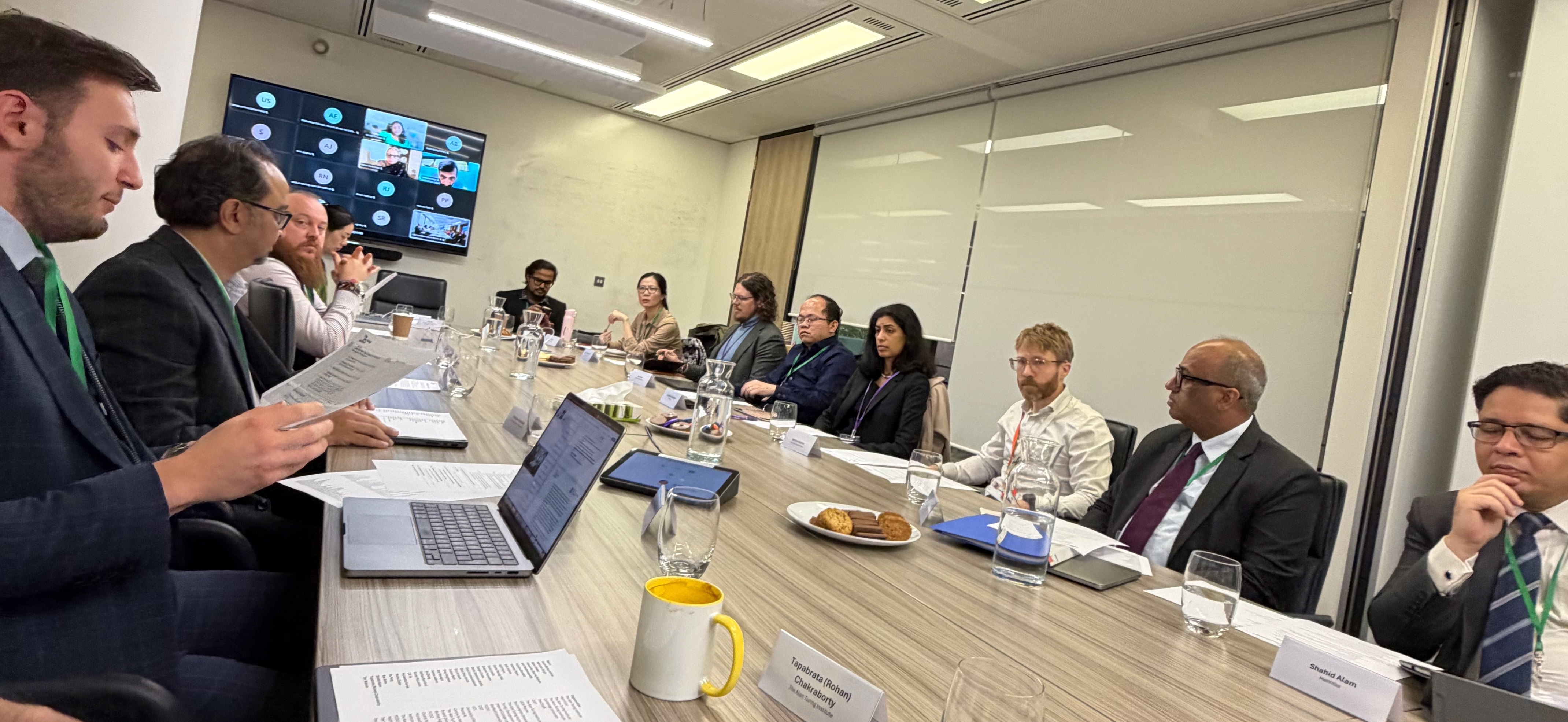
Their recent AI Governance Guidelines also seemed reasonable to me. It identified risks in malicious use, bias and discrimination, transparency failures, systemic risks, loss of control, and national security challenges, but didn't overspecify solutions to these. The report was chaired by IIT-Madras, where I've been collaborating with KC Sivaramakrishnan ever since he left Cambridge, so there's a nice connection there too!
After the round table, we broke out into detailed planning sessions. I joined the climate one, where Eviatar Bach gave me a splendid ad-hoc tutorial on the difficulty of subseasonal weather forecasting and pointed me to their notes on inverse problems. I delivered an explanation of TESSERA and how terrestial forecasting is important towards areas such as farming, and we also learnt from Po Yang and others present about the latest in agricultural robotics.
Of particular note is the large amount of work being done by Wadhwani AI towards "real world" AI deployment in India; for example, doing uncertainty aware inferencing to build trust with thousands of cotton farmers across India. I'm very much looking forward to building up more concrete collaborations here, in addition to the work we're starting with the CoRE Stack following PROPL25.
2 The OpenUK AI Impact Dinner
Without pause, the next day I went back to London to have a roundtable dinner organised by the wonderful Amanda Brock from OpenUK for further discussions. This time, the focus was on the critical role of open source as a medium for exchange between the UK and India. There were some wonderful discussions here again, ranging from open agentic infrastructure, to building open communities in the vibe coding world, to new communities around crowdsourcing nature data!
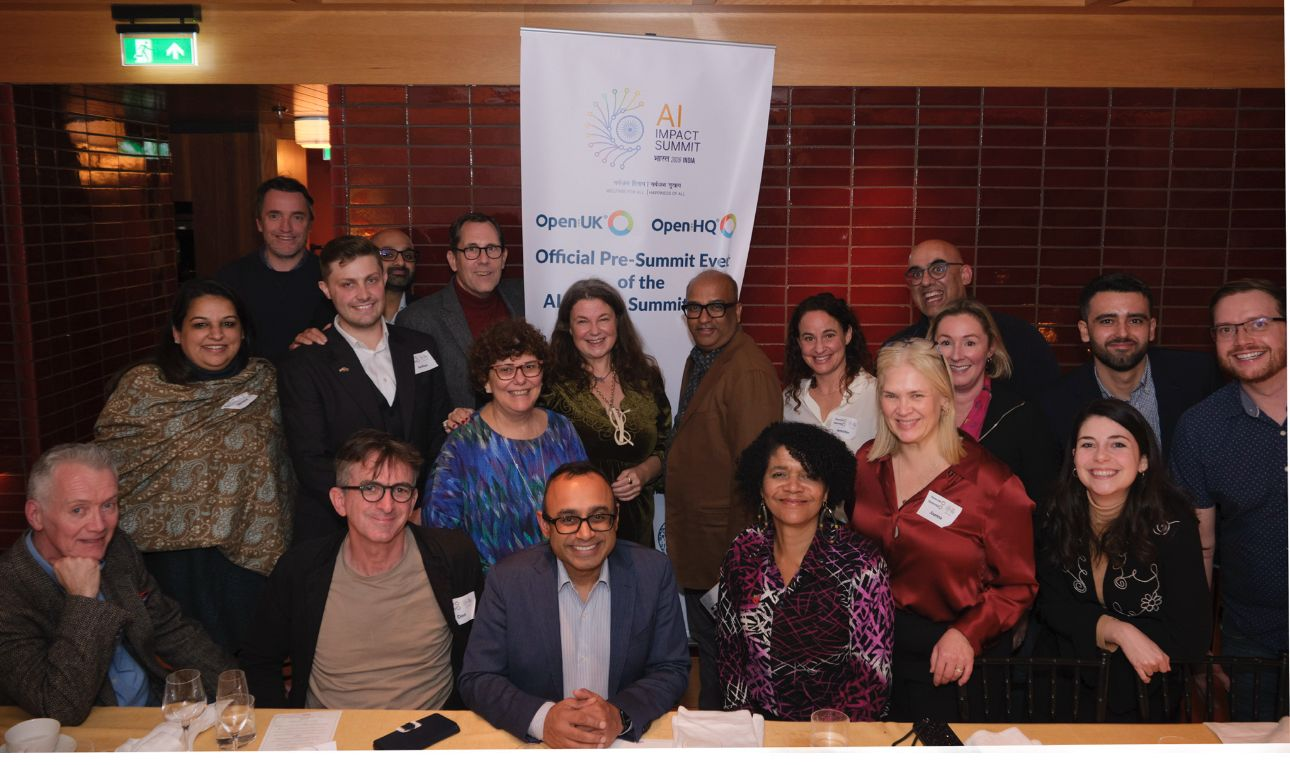
2.1 Going the full ZFS circle with Luke Marsden
I saw Luke Marsden again after a decade following DockerCon 2016, and learnt he is now working on a cool local agentic inference stack called helix.ml, which sounded like exactly what we need with all the complex agentic coding happening for building our collective knowledge database.
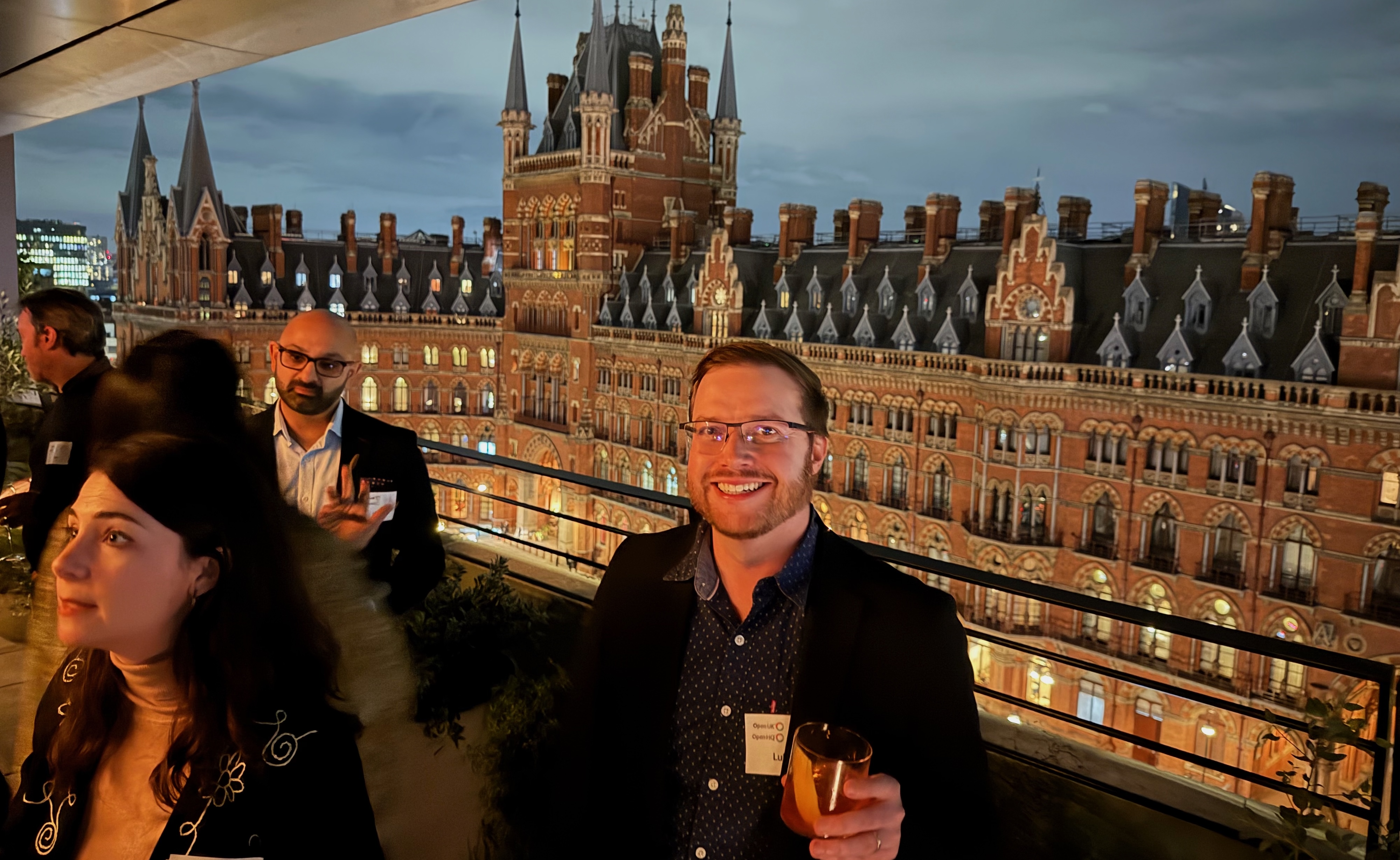
Ironically, Luke used to work on a brilliant ZFS appliance for Docker with his old ClusterHQ startup when I saw him last. Nowadays, I find my own group hacking on the same sort of thing. Patrick Ferris has been using ZFS in his Shelter shell, and Mark Elvers has been building a giant petascale storage cluster for our Tessera embeddings. I love how open source goes full circle all the time!
2.2 Building open community across countries and agents
Don Syme not only leapt to the defence of higher order languages[1], but more importantly gave a thoughtful note on the difficulty of building community when everyone is AI coding. Community in open-source isn't just code; it's about "soaking in" the whole lifecycle of crafting something together. We're in real danger of losing the incentive to communicate and socialise if we're all vibe coding at high speed, and that in turn will signal a real problem in how we mentor and build distributed communities across geographies.
Coincidentally, there's been a lot of online discussion about this same topic in the past few days. KC Sivaramakrishnan reflected on foundations for hacking on OCaml, and Patrick Ferris on his experiences picking up systems research. Meanwhile, a keen first-time contributor to OCaml decided that artisinal coding is the future and caused a ruckus among the maintainers. It's so easy to contribute PRs now -- which is great! -- but there's also no empathy for the amount of work it'll cause maintainers who have to deal with this flood of long-term technical debt. My gut feeling is that more in-person events (such as attending the AI summit and running hackathons) is the only way forward in the short-term, to recruit contributors who care about the long-term as well.
2.3 No event is complete without the LIFE of hedgehogs
I spoke to the assembled group about our work on LIFE and TESSERA, and was bowled over the by the desire to engage on the topic from many of those present. I particularly enjoyed sitting beside BBC tech journalist Zoe Kleinman who I ended up explaining my obsession with tracking hedgehogs to.
It does feel to me like this hedgehog tracking project has really resonated with people. Satellite mapping can be a little abstract as a concept, but spotting hedgehogs from space is an immediate draw to a topic people are interested in immediate usecases where AI can help figure out the state of nature in their own backyards.
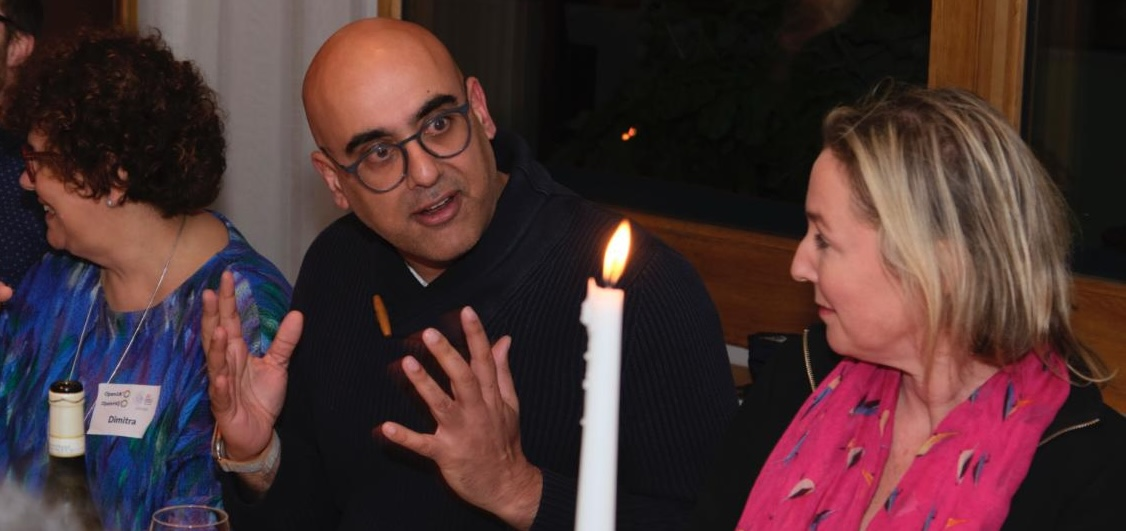
Aside from this, some random enjoyable tidbits of the evening:
- Dame Chi Onwurah is an MP who went to Imperial a few years before me and is a proper hacker with an engineering degree! Just like our own Julian Huppert, it's encouraging to see senior politicians who are deeply technical engaging on policymaking at the top echelons of government. She's also written great pieces about how the industrial past and a green future are not incompatible and supported minorities in STEM for years.
- I met Joe Fay for the first time, and discovered that he's the former editor of the Register who covered lots of our early and current days of Docker. A thoroughly lovely chap with lots of insights into the long arc of technology.
- Dimitra Simeonidou from Bristol told me about their JOINER dark fiber network across the UK, which might actually help us shift some of these petabytes of planetary embeddings around more easily across universities. Very cool to see cutting edge telecoms research dropping around the UK; I don't know much about the Cambridge end of this as it's run from Engineering, but I did find the JOINER-NSF paper to be helpful background.
- Jennifer Barth, the Chief Research Officer for OpenUK, turned out to have done her DPhil on the ethnographics of coffee. So I had an unexpected chance to discuss open-source approaches to exploring food commodity impacts on the planet with an expert on the topic!
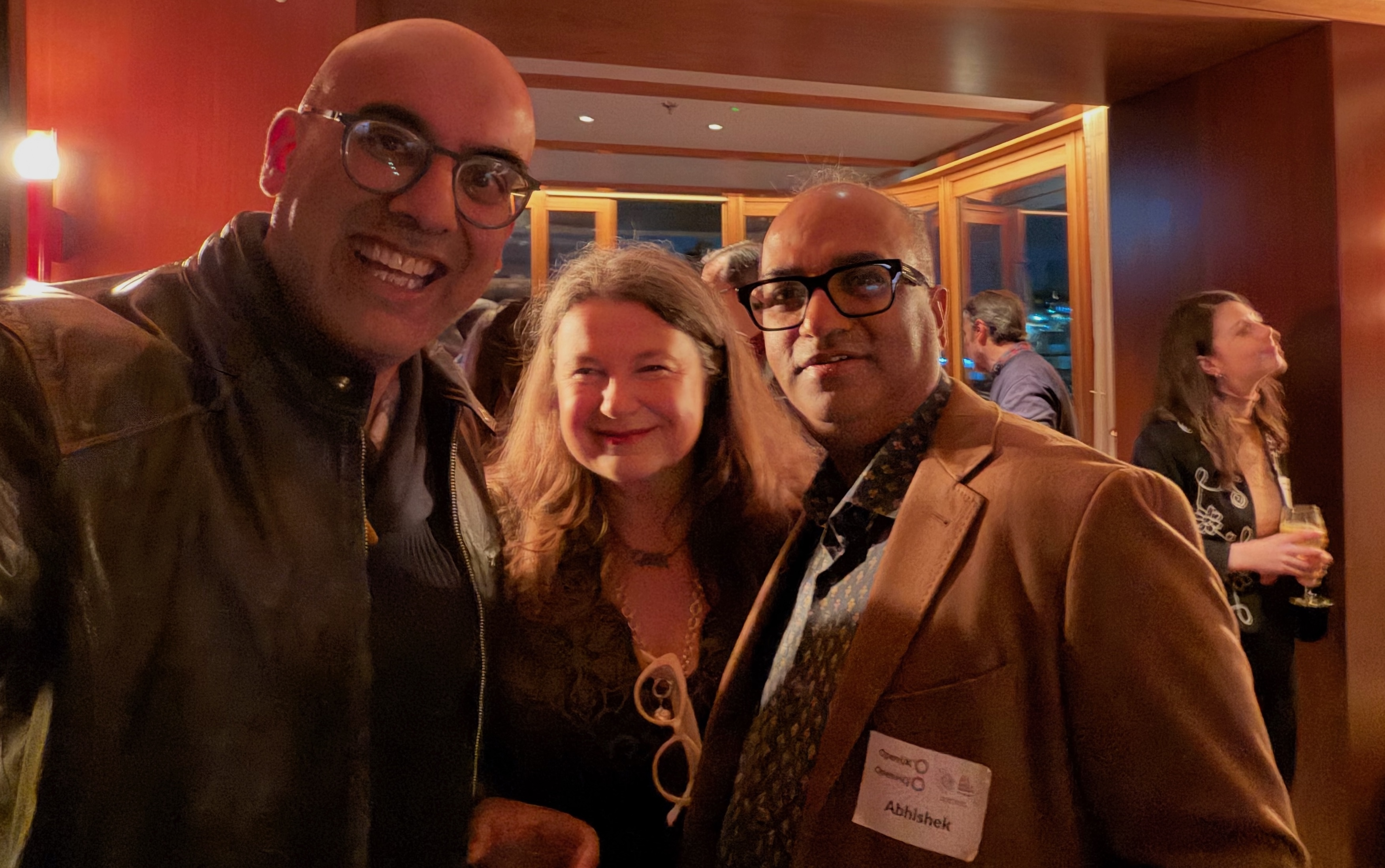
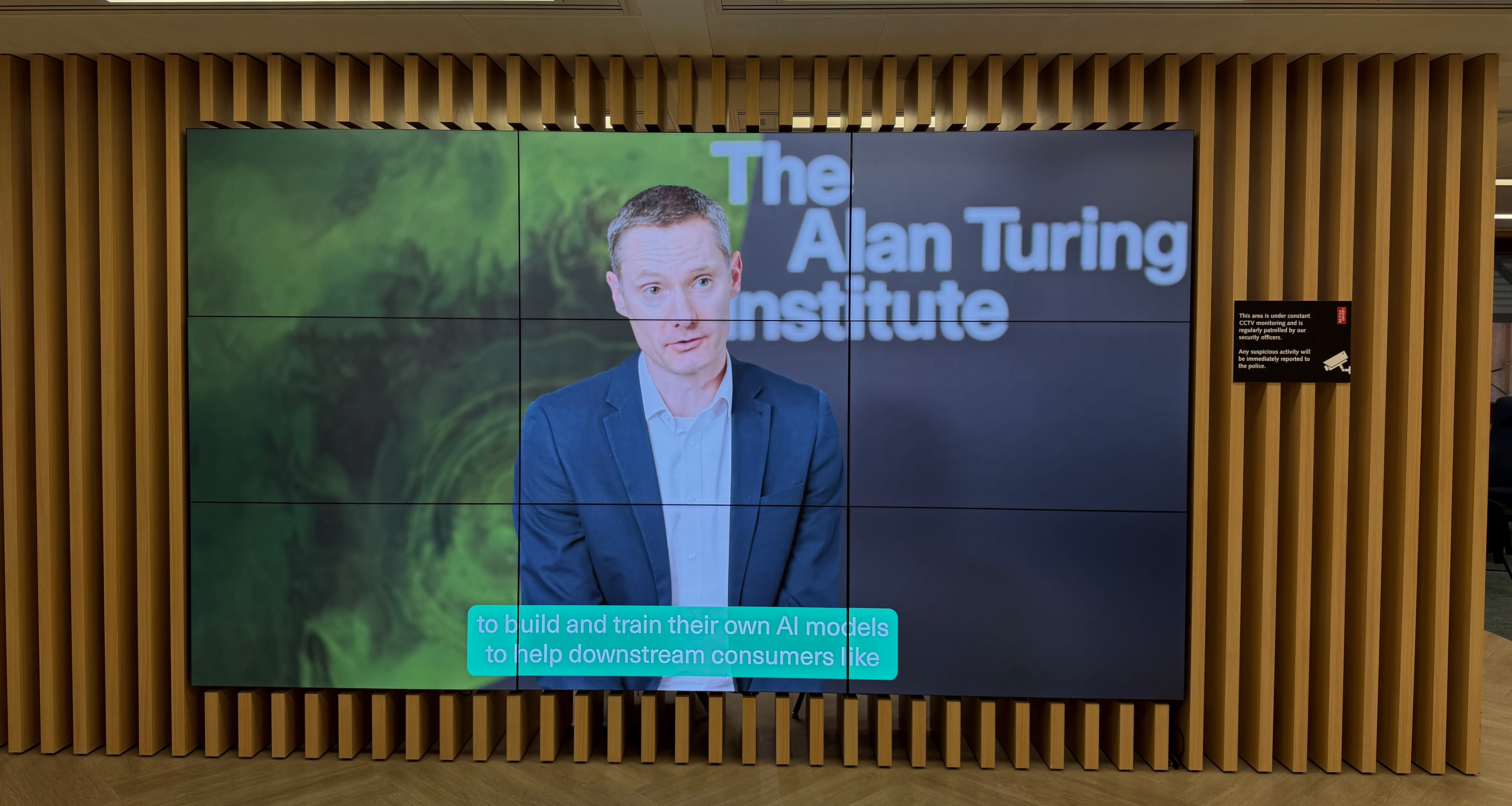
Follow the discussion about this on LinkedIn as well. I look forward to more followups with the ATI, OpenUK and our colleagues in India!
-
A story to tell another day, since this meeting was also under Chatham House rules.
↩︎︎
